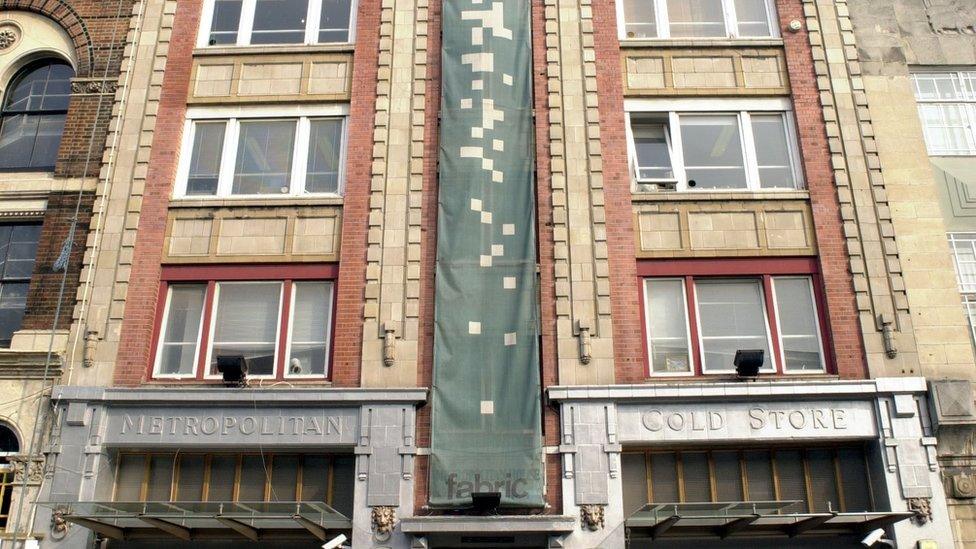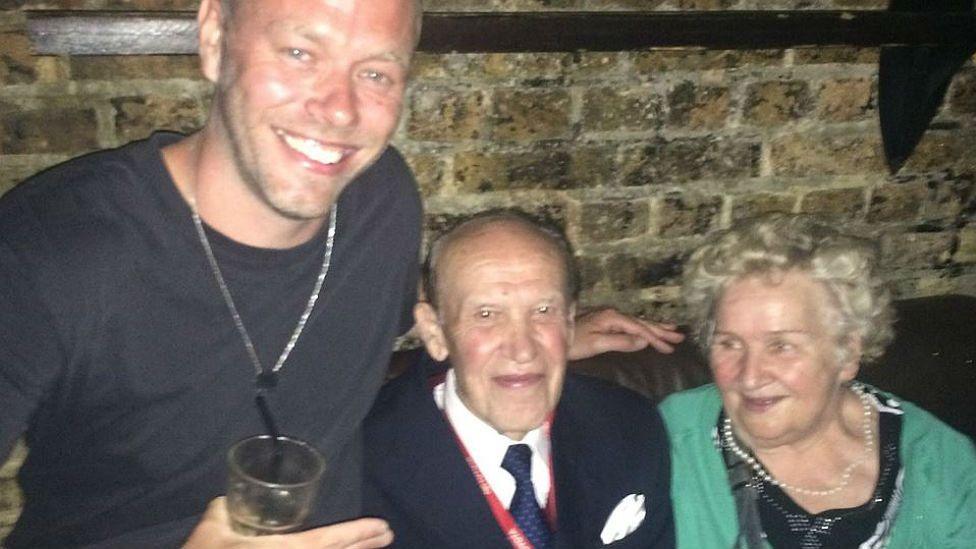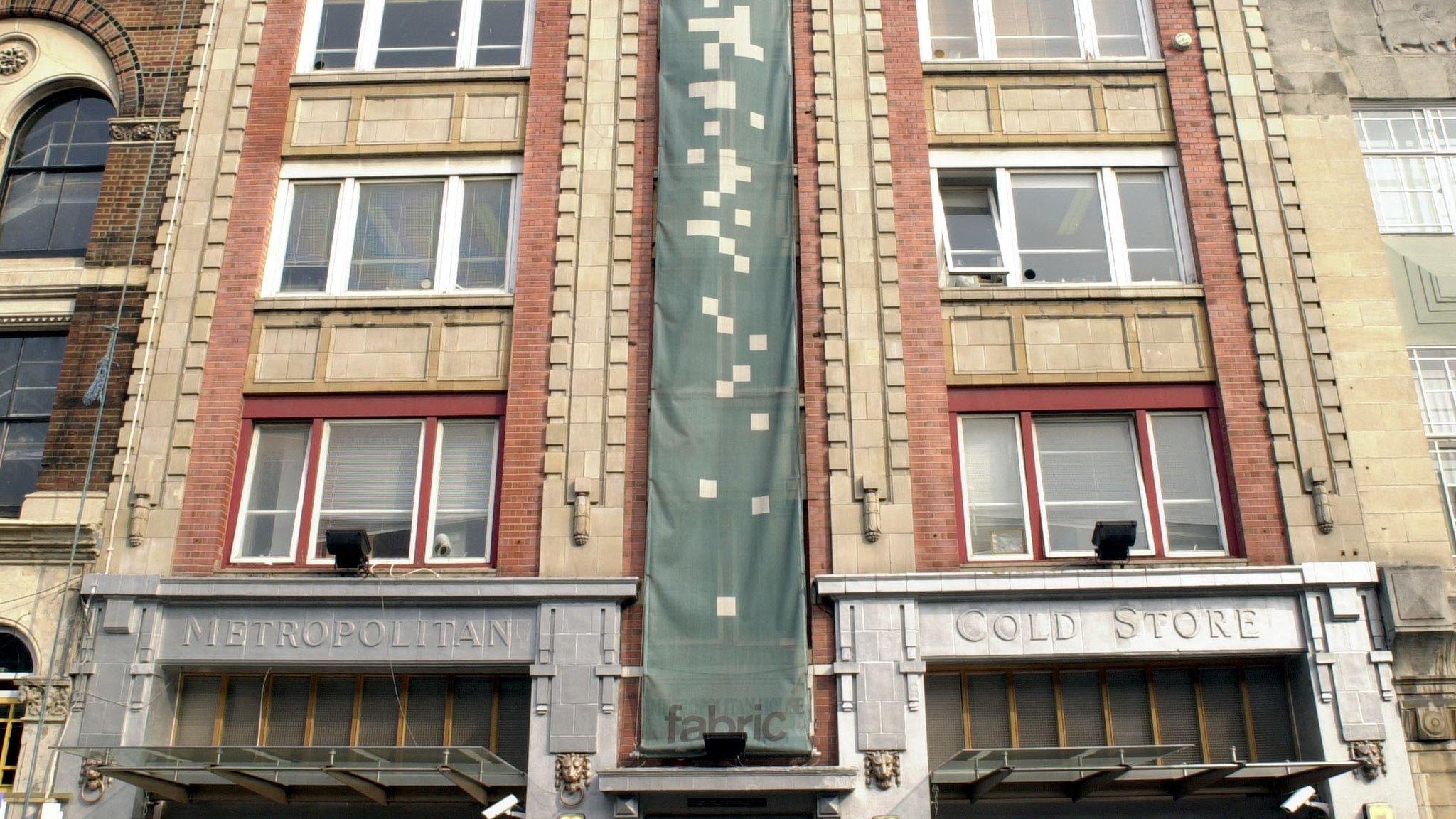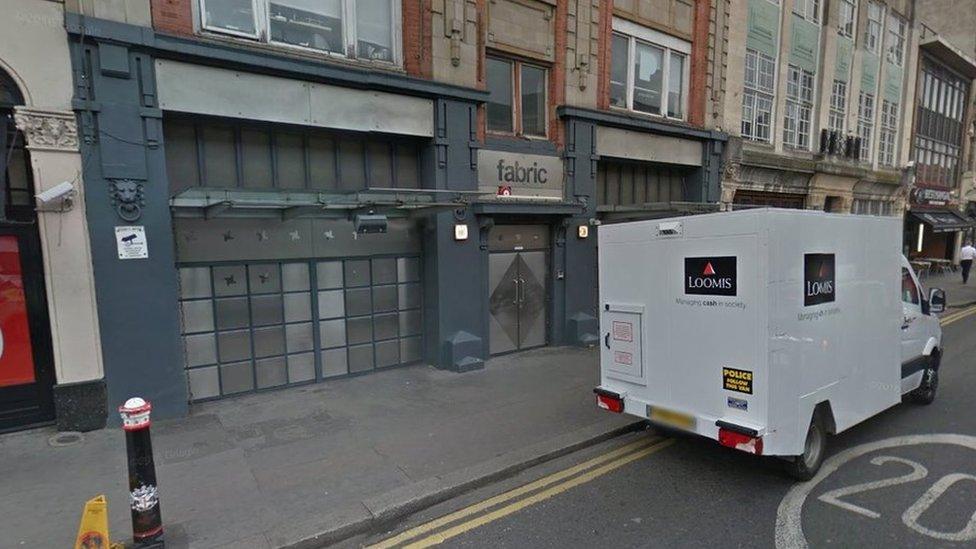More drug deaths will happen at Fabric, say Met Police
- Published

The council will decide the club's future on 6 September
Further drug-related deaths will happen at one of London's biggest nightclubs unless serious changes are made, according to the Met Police.
Fabric, in Farringdon, has had its licence temporarily suspended after two 18-year-old boys died following suspected drug overdoses.
There have been six drug related deaths at the nightclub since 2011.
In a report, external, the force said the nightclub had become associated with drug use, in particular, MDMA.
The submissions have been sent to Islington Borough Council, which is set to decide whether to reinstate the club's licence.
The report says on 25 June, one teenager died after taking MDMA pills which had been smuggled in a friend's socks.
On 6 August, another 18-year-old took MDMA which had been smuggled into the club inside boxer shorts.
One of his friend's told police: "We were very surprised about the lack of searching on this occasion. I was only patted down softly and I even said to the searching officer 'do you not want to check my pockets' and he said something like 'no don't worry about it'."
They added: "I could tell by people's body language and behaviour that well over 80% of the other people in the club appeared to be under the influence of drugs.
"The culture in the club is a drug culture and it's known by everyone who attends that you can buy drugs easily from within the venue," they said.
'Tolerant of drug taking'
On 2 July, undercover police officers witnessed open use of drug taking in the nightclub.
Officers noted many people with glazed, red eyes; sweating and staring into space. The free water bars were busy, whereas the bars selling alcohol were not.
Chief licensing officer Ian Graham described the system of preventing banned people from entering the club was "wholly inadequate" as staff were expected to remember the faces of more than 100 people from their photographs.

The club attracted headlines in May when an elderly couple attended
"There is clearly an element of tragic misadventure in the drug-related deaths at Fabric," said Sgt Barnes.
"However it is the contention of the police that an environment which is tolerant of drug-related serious crime has been created and maintained by the operation of the club in its current manner."
Officers suggested raising the age of entry to 25 as younger, "inexperienced" drug users were more vulnerable to a fatal overdose.
"The police urge the committee to give serious consideration to revocation of the licence. If the premises continue to operate in the same way it is believed that further drugs related deaths will inevitably follow."
Fabric said it strongly contested the allegation that the club had created an environment where drug-taking was in any way acceptable.
A spokesman for the nightclub said: "We are deeply saddened by the two recent tragic deaths that have taken place and our thoughts are with the family and friends of those concerned.
"Fabric has always worked closely with the police and the licensing authority in adopting the most effective known techniques to reduce harm and prevent drug-related crime on our premises, and we continue to look at new ways we can improve our processes.
"Drugs continue to be a major and constantly evolving challenge for clubs like ours. We recognise there is always more we can learn and we are independently reviewing all our procedures in light of recent events."
'Common sense solution'
The report also contains submissions from people in support, external of Fabric.
One person, who works there, wrote: "We are so strict on the doors. The security really pat down people for drugs (private parts etc) girls have bras searched as well it's extremely intense compared to other venues, festivals, parties around the world."
A petition supporting Fabric has been signed by nearly 100,000 people.
In response, external, London Mayor Sadiq Khan said he had urged all involved to find a "common sense solution" that ensured the club stayed open while those who attended were protected.
Update 31 August 2016: This story has been amended following a statement supplied by Fabric nightclub in response to the Metropolitan Police report.
- Published12 August 2016

- Published24 August 2016
